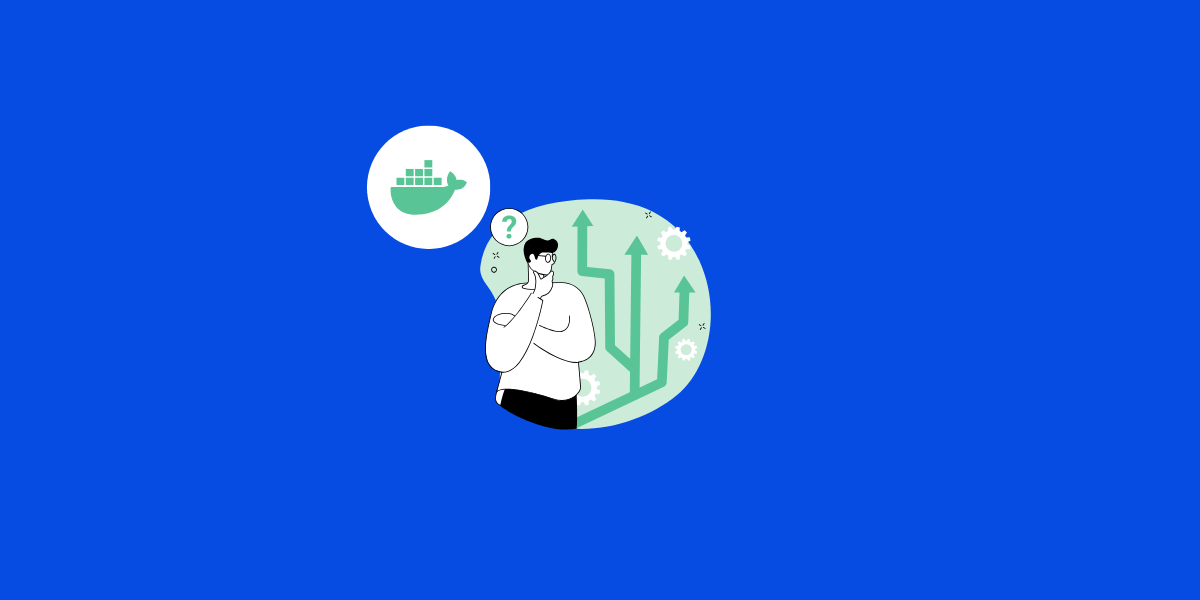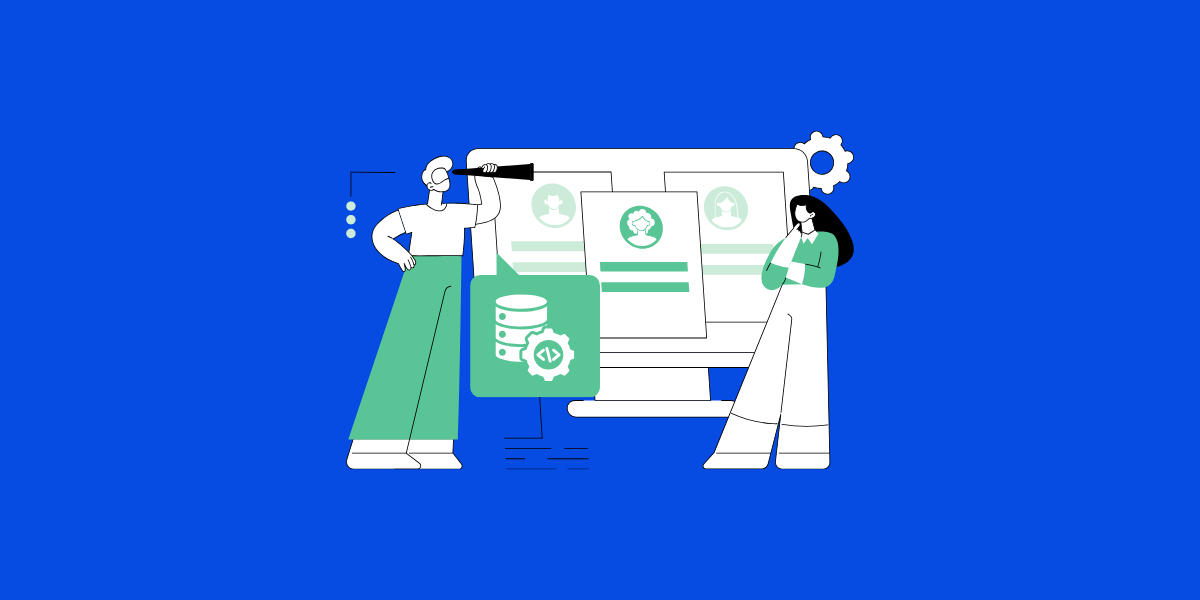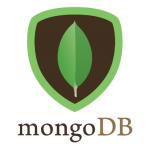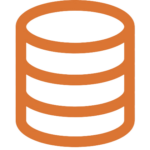Hire remote Docker developers that you can trust
Hire Docker developers from a unique network of 50,000+ pre-vetted offshore talents from Europe and Latin America, looking for a full-time contract. YouTeam developers stand apart for their ability to think like product managers and act like software architects. We also manage everything, so there’s zero overhead for your company.
Hire developers70 best Docker developers for hire on YouTeam in February 2025

Juan
React.js and Node.js Engineer
Viacheslav
Lead PHP Developer
Pedro
Software Engineer
Ivan
Senior Full-Stack Engineer
Oleksandr
Java Developer
Dmitriy
DevOps Engineer
Enrique Alexis
Data Engineer and Data Architect
Abel
Senior Software Engineer
Dima
DevOps Engineer
Jimmy
DevOps EngineerStart hiring to
see all talent
Hire
developers

Best Developer
DevOps EngineerTrusted by Fortune 500 companies and Y Combinator startups
Why hire Docker developers with YouTeam
 48-hour personalized matching
YouTeam handpicks the best-matched candidates.
48-hour personalized matching
YouTeam handpicks the best-matched candidates.
 Zero overhead
Locally-compliant contracts and billing
Zero overhead
Locally-compliant contracts and billing
 Dedicated white-glove support
Dedicated white-glove support






How to hire Docker developers with YouTeam
Share your requirements Set up a quick call with one of our Matching Experts — your dedicated contact at YouTeam.
Undergo Personalized Matching Your Matching Expert curates a candidate list, conducts pre-interviews, and ensures a perfect match for your needs—covering developers' skills, tech stack preferences, interests, and personality.
Meet the right candidates Review a list of candidates screened specifically for your request and pick the best for the interview stage. Average interview-to-hire ratio on YouTeam platforms: 1.75.
Hire and work with confidence YouTeam automates contract signing and invoicing through its secure system. Your dedicated Matching Expert stays with you throughout the collaboration with contractors.

Find developers skilled in related technology
More technologiesRead about Docker on our blog
 10 Interview Questions to Ask Docker Developer (+Expected Answers)
10 Interview Questions to Ask Docker Developer (+Expected Answers)
Svetlana Shevchuk
 A Complete Guide to Hiring a Back-End Developer in 2024
A Complete Guide to Hiring a Back-End Developer in 2024
Svetlana Shevchuk
About Docker
- What is Docker?
- Why use Docker containers?
- Essential tools for Docker developers
- What is the role of a Docker developer?
- Docker developers experience levels
- Tasks and responsibilities of a Docker developer
- What skills should I look for in a Docker developer?
- Hiring Docker developers: freelance, in-house, or outsourced
- How to write an effective Docker job description
- Top Docker developer interview questions
Docker is an open-source container orchestration tool for developing, managing, and running applications. This platform enables separating the applications from the platform into containers. Containers are the standardized components that combine application source code with the libraries and other dependencies for better performance in any kind of environment.
Docker container technology offers developers numerous advantages similar to those of Virtual Machines (VMs), such as disposability, cost-effectiveness, scalability, and application isolation. However, Docker goes further, providing additional capabilities that make it an essential tool for modern software development.
Lightweight and efficient updates
Docker containers are lightweight, enabling faster startup times and more efficient use of hardware resources. With Docker, you can isolate processes within a container, allowing you to update specific parts of an application without affecting the rest, which streamlines development and supports continuous integration (CI/CD) pipelines.
Portability
One of Docker’s biggest strengths is its portability. Docker containers run consistently across different environments without relying on machine-specific configurations. This makes them ideal for deployment across various operating systems and cloud platforms like Google Cloud Platform and Microsoft Azure.
Automation and reuse
Docker simplifies the automation of development processes. Developers can automatically create containers based on application source code, significantly easing the development and deployment process. Additionally, reusable Docker images allow developers to create templates for new containers, improving efficiency.
Flexible versioning and configuration management
Docker’s ability to track updates, manage Docker volumes, and support configuration management allows developers to move between versions or update specific environment components seamlessly. This flexibility is especially valuable for development teams, DevOps engineers, and skilled Docker developers who need to maintain a consistent environment across multiple containers and CI/CD pipelines.
Library sharing and community support
Docker provides access to an extensive library of open-source Docker images through registries like Docker Hub. This community-driven resource enables developers to share and find pre-built containers, accelerating development and deployment processes.
Scalability and container orchestration
Docker containers support both horizontal and vertical scaling, making them suitable for building scalable cloud infrastructure. With tools like Docker Compose and Docker Swarm, developers can manage multiple containers and orchestrate their deployment, ensuring smooth load balancing and seamless integration with existing systems.
Docker containerization offers a powerful and flexible solution for managing modern software development, enabling developers to build, deploy, and scale applications with ease. Whether you’re looking to hire Docker developers or enhance your development environment, Docker’s capabilities make it an indispensable tool in today’s development landscape.
Here are some essential tools that improve productivity and efficiency for Docker developers:
1. Docker Desktop: This application provides an easy-to-use interface for managing Docker containers and images on both Windows and macOS. It allows developers to run Docker commands, manage settings, and access advanced features like Kubernetes integration.
2. Docker CLI (Command-Line Interface): The Docker CLI enables developers to interact with Docker through command-line commands. It offers powerful capabilities for managing images, containers, networks, and volumes, allowing for precise control over the Docker environment.
3. Docker Compose: This tool simplifies the process of defining and running multi-container applications. With a single YAML file, developers can configure services, networks, and volumes, enabling them to start up entire application stacks with one command.
4. Docker Hub: A cloud-based registry, Docker Hub allows developers to store, share, and distribute Docker images. It provides access to a vast library of community-contributed images and serves as a central repository for private and public projects.
5. Kubernetes: While not exclusive to Docker, Kubernetes is an essential orchestration tool for managing containerized applications at scale. It automates deployment, scaling, and management, helping developers efficiently handle complex application architectures.
6. Visual Studio Code: This popular code editor offers robust Docker support through extensions. Developers can build, run, and debug Docker containers directly within the editor, streamlining the development process.
7. Portainer: A web-based management tool, Portainer provides a user-friendly interface for managing Docker containers and images. It simplifies the monitoring and administration of Docker environments, making it easier for developers to visualize and control their applications.
8. Docker Swarm: This native clustering tool for Docker enables developers to manage a group of Docker hosts as a single virtual host. It simplifies scaling and load balancing across multiple containers and hosts.
A Docker developer specializes in creating, managing, and deploying applications using Docker containers. Their primary role is to ensure that software can run consistently across different environments by packaging applications and all their dependencies into containers. This allows for easier application scaling, version control, and isolation. Docker developers work on optimizing container performance, integrating Docker into CI/CD pipelines, and resolving environment-specific issues, ensuring applications are portable, efficient, and scalable across cloud or on-premises infrastructure. They often collaborate with DevOps and engineering teams to automate and streamline the deployment process.
Docker developers, depending on their level (junior, middle, and senior), have varying amounts of knowledge and experience. Here are the main differences between each experience level.
Junior Docker Developer
Junior Docker developers typically have up to two years of experience. At this stage, they should be familiar with the basics of containerization, basic Docker commands, and at least one programming language. They may have some exposure to Kubernetes but are more likely involved in simpler tasks like container orchestration rather than advanced features like auto-scaling. Familiarity with monitoring and alerting tools, such as Grafana or PagerDuty, is a plus but not always required. Junior developers usually work closely with more experienced engineers, allowing them to grow and expand their knowledge in container development.
Middle Docker Developer
Middle Docker developers have three to five years of experience. They are expected to have more advanced knowledge of Docker, as well as experience with Kubernetes and cloud platforms. These developers typically have strong proficiency in at least one programming language and are capable of designing, building, and deploying container-based applications. They work on more complex tasks and can provide effective software solutions that align with business goals.
Senior Docker Developer
Senior Docker developers have over five years of experience and possess advanced expertise in Docker, Kubernetes, and multiple programming languages. They often have experience managing virtual machines and legacy systems as well as migrating applications to container-based infrastructures. Senior developers usually take on leadership roles, overseeing projects, managing teams, and handling more complex architectural and scaling challenges. They are responsible for ensuring that containerized environments are optimized, secure, and scalable.
Docker developers are responsible for designing, implementing, and maintaining containerized applications using Docker and related technologies. Their tasks vary depending on the project, but some of the key responsibilities include:
1. Containerization of Applications: Docker developers convert traditional applications into Docker containers, ensuring they run efficiently across different environments without compatibility issues.
2. Designing and Managing Docker Environments: They set up, manage, and optimize Docker environments, ensuring containers are scalable, reliable, and secure. This includes configuring Docker Compose, Docker Swarm, or Kubernetes for orchestration.
3. Writing and Optimizing Dockerfiles: Developers create and maintain Dockerfiles, ensuring that container images are lightweight, secure, and optimized for performance.
4. Integration with CI/CD Pipelines: Docker developers integrate Docker with Continuous Integration/Continuous Deployment (CI/CD) pipelines to automate testing, building, and deployment processes. This helps ensure a smooth development workflow.
5. Container Monitoring and Troubleshooting: They use monitoring tools like Prometheus, Grafana, or ELK Stack to monitor containers in production. They are responsible for diagnosing and resolving performance bottlenecks or any issues that arise in containerized applications.
6. Collaborating with Development Teams: Docker developers work closely with other engineers, DevOps teams, and system administrators to ensure seamless application deployment and updates across different stages of the development lifecycle.
7. Security Implementation: They ensure that containerized applications adhere to security best practices, such as minimizing container privileges, avoiding unnecessary network exposure, and using secure images from trusted repositories.
8. Documentation and Maintenance: Docker developers document their work, processes, and configurations, making it easier for other team members to manage or scale applications in the future. They also maintain Docker infrastructure to ensure continuous performance and updates.
1. Proficiency in Docker: Deep understanding of Docker fundamentals, including creating, managing, and deploying containers, as well as using Docker Compose for multi-container applications.
2. Containerization and Microservices Architecture: Expertise in containerizing applications and implementing microservices for scalability and performance.
3. Kubernetes and Orchestration Tools: Strong familiarity with Kubernetes for managing containerized applications and knowledge of tools like Docker Swarm and Helm.
4. CI/CD Pipeline Integration: Ability to integrate Docker into CI/CD pipelines using tools like Jenkins or GitLab CI for automated builds and deployments.
5. Cloud Computing Experience: Experience with cloud platforms (e.g., AWS, Azure) and services like ECS or AKS for deploying and managing containers.
6. Networking and Security: Knowledge of Docker networking concepts and security best practices, including image vulnerability scanning and access control.
7. Version Control and Collaboration Tools: Proficiency with Git and collaboration tools like GitHub or Bitbucket for managing code and Docker configurations.
8. Monitoring and Troubleshooting: Experience with monitoring tools like Prometheus or Grafana and skills in diagnosing issues within containerized environments.
9. Programming and Scripting Knowledge: Strong background in a programming language (e.g., Python, Java) and scripting skills (e.g., Bash) for automating container management.
10. Collaboration and Communication: Strong communication skills for working effectively with DevOps engineers, along with the ability to write clear documentation.
When hiring Docker developers, you have three main options: freelancers, in-house engineers, and outsourced developers. Each model has its advantages depending on the size, budget, and complexity of your project.
Freelance Docker Developers
Freelancers are independent contractors who typically work on short-term projects. If your company has a limited budget or the project is small in scope, hiring freelance Docker developers might be a good solution. However, finding highly skilled freelancers can be challenging since top developers often work full-time for large companies. Additionally, freelancers may not always be fully committed to your project compared to in-house engineers.
In-house Docker Developers
For long-term or core development needs, hiring in-house Docker developers is ideal. These developers are more dedicated to the project, work closely with the team, and can offer valuable insights on improving the project. However, hiring in-house staff can be costly, as it involves providing tools, technology, and benefits like bonuses and other employment-related expenses.
Outsourced Docker Developers
Outsourcing is a flexible option where you can hire a dedicated team or additional developers to complement your in-house team. You can outsource an entire development team, including project managers, designers, and QA testers, or bring in external Docker developers to work alongside your in-house team. Outsourced teams provide focus and can efficiently help your core developers implement new ideas.
To write a clear and effective Docker job description, follow these steps:
1. Job Title: Start by specifying the role, such as “Docker Developer,” “DevOps Engineer with Docker expertise,” or “Containerization Specialist.” Ensure the title reflects the core skills and responsibilities you need.
2. Job Overview: Provide a brief introduction to the position. Explain how the Docker developer will contribute to your team or project, such as by managing containers, improving infrastructure, or ensuring scalability.
3. Key Responsibilities: Describe the primary tasks the candidate will be responsible for. These might include developing and maintaining Docker containers, working with container orchestration tools like Kubernetes, setting up CI/CD pipelines, and collaborating with development and operations teams.
4. Required Skills and Qualifications: List the technical skills necessary for the role. These may include deep knowledge of Docker, proficiency with container orchestration tools (e.g., Kubernetes, Docker Swarm), experience with cloud platforms (AWS, Azure, GCP), and knowledge of CI/CD processes. Specify programming languages, like Python, Java, or Go, if applicable.
5. Experience Level: Specify the years of experience needed, such as “3-5 years of Docker experience,” and whether you’re seeking a junior, mid-level, or senior engineer. Also, mention any specific industry experience that might be required.
6. Education and Certifications: If applicable, mention educational requirements, such as a degree in computer science or a related field. Include any relevant certifications, like Docker Certified Associate, that might be preferred or required.
7. Soft Skills: Highlight the importance of communication, problem-solving abilities, and teamwork, especially if the candidate will be working cross-functionally with other teams.
8. Work Environment and Benefits: Provide an overview of the work environment, whether it’s remote, hybrid, or on-site. Mention the benefits, such as salary range, health benefits, and professional growth opportunities.
Below are some sample questions to help you evaluate the hard skills of a seasoned Docker professional.
1. How do you handle Docker container orchestration, and what are the key differences between Docker Swarm and Kubernetes? This question tests the candidate’s knowledge of container orchestration tools and their ability to manage containerized applications at scale. You’ll learn if they can effectively use both Docker Swarm and Kubernetes, and understand which one fits better for specific use cases.
2. How do you optimize Docker images for production? Optimizing Docker images is critical for ensuring faster deployments, smaller image sizes, and efficient resource utilization. The developer should be able to explain best practices like using minimal base images, multi-stage builds, and removing unnecessary dependencies.
3. Explain how you would persist data in a Docker container. Containers are ephemeral by nature, meaning that data can be lost when they are stopped or removed. The candidate should explain how to manage persistent storage using Docker volumes or bind mounts, ensuring that data remains intact.
4. Can you describe your approach to securing Docker containers in a production environment? Security is a major concern in containerized applications. A solid candidate should describe practices such as using trusted base images, limiting container privileges, network isolation, and incorporating security scanning tools like Docker Bench or Clair.
5. How do you manage Docker networking in a complex microservices environment? This question gauges the developer’s understanding of Docker networking modes, such as bridge, host, and overlay, and how they handle inter-container communication in microservices architectures.
6. What strategies do you use to monitor and troubleshoot Docker containers? Monitoring is critical for maintaining system performance and reliability. A qualified Docker developer should discuss tools like Prometheus, Grafana, ELK Stack, or Docker’s built-in logging and metrics functionalities for monitoring containers.
7. Describe a scenario where you had to migrate an existing application to Docker. What challenges did you face, and how did you solve them? This question is designed to assess real-world experience. Look for answers that show practical knowledge of how Docker can be integrated into existing workflows, along with any migration hurdles and the developer’s solutions.
FAQ about Hiring Docker developer
Why choose YouTeam to hire Docker developers?
YouTeam offers access to a highly qualified pool of Docker developers, helping you scale your team quickly. Each developer is thoroughly vetted, ensuring their skills, experience, and reliability. With partnerships across 500+ development agencies and over 50,000 developers, you can receive qualified candidates within 48 hours, making it a fast and reliable solution for your hiring needs.
How does YouTeam vet Docker developers?
YouTeam follows a multi-stage vetting process. First, developers are sourced from trusted development agencies, ensuring they meet the necessary skill and experience requirements. Pre-screened candidates are then forwarded to clients for further interviews, allowing them to select the best fit based on specific project needs.
How much does it cost to hire the best Docker developers through YouTeam?
The cost of hiring Docker developers on YouTeam varies based on factors like expertise, location, and skills. On average, a Docker developer through YouTeam charges around $53 per hour, though rates can fluctuate depending on specific project requirements.
How quickly can you hire with YouTeam?
With YouTeam, you can hire developers faster than traditional methods. Here’s why:
1. Shortlist in 48 hours: Powered by our AI Matchmaker and human experts, we deliver a tailored shortlist of vetted candidates within just 48 hours.
2. Larger talent pool: As a marketplace, YouTeam offers access to a broader range of developers from hundreds of partner agencies, giving you more options than typical outsourcing agencies.
3. Seamless process: From the moment you request a call, our Matching Experts handle the rest, ensuring you quickly receive top-quality candidates who match your precise requirements.
With YouTeam, our clients have been able to build development teams within just a few weeks, not months.
What is the no-risk trial period for YouTeam developers?
• 1-Month Trial: You can terminate the engagement at any time during the first month.
• Free Replacements: If you’d like to replace a contractor, we’ll do it within two weeks, free of charge.
You can learn more by reading our Money-Back Guarantee.
How is YouTeam different from freelance portals for hiring Docker developers?
Unlike freelance platforms, YouTeam connects you with developers from trusted software development agencies, not freelancers. This ensures that developers have the necessary technical and soft skills, along with relevant experience. If a developer needs to be replaced unexpectedly, YouTeam can quickly provide a substitute of equal skill to avoid project delays.
How do Docker developer salaries differ, and why?
Docker developer salaries can vary significantly based on factors such as location, experience level, and the specific technologies used. In the United States, for instance, the average annual salary for a Docker developer is approximately $110,000, with salaries in major tech hubs like San Francisco and New York reaching up to $150,000 or more. The high cost of living and demand for skilled developers in these areas contribute to these elevated salary ranges.
In contrast, salaries for Docker developers in Eastern Europe typically range from $45,000 to $70,000 per year, while in Latin America, they often fall between $30,000 and $60,000 annually. These differences show that companies can save money by hiring skilled developers from regions with lower living expenses.
Reviews
“It's just much more convenient to find a small team. I talk to one person, get 5 hand-picked CVs, interview candidates, hire the best ones – and I’m done!”
“Every time YouTeam sends me a list of potential developers, I am confident that I can interview pretty much anybody and they will be a good candidate.”
“The decision to use YouTeam was made by comparing them directly to the other candidates. As soon as I started talking to them, YouTeam adopted a hands-on approach. Time-wise, YouTeam also performed well.”
“We will definitely continue with them in the future. I’m so happy with their work that I’ve recommended them to my other company as well. There were no issues, it was really good. I gave a very loose brief, and the developer who worked for me had enough initiative to tighten it up by asking relevant questions. There was no messing around—it was done really well, with good, clean code.”
“YouTeam was very quick and responsive. I was presented with great candidates in just days, which was fantastic for me because we were looking to move fast. They had experience working on similar projects to exactly what we needed.”
“We wanted to boost our capacity for a period of six to twelve months. I decided to get a shot with YouTeam is that in any other place I can't say that I'm looking for a team of 5 developers with the possibility to scale. Now I returned to them again - this time for the confidence. If somebody is on the YouTube platform, you know that they've met a certain threshold of customer satisfaction, they've got a history of successful work elsewhere.”









